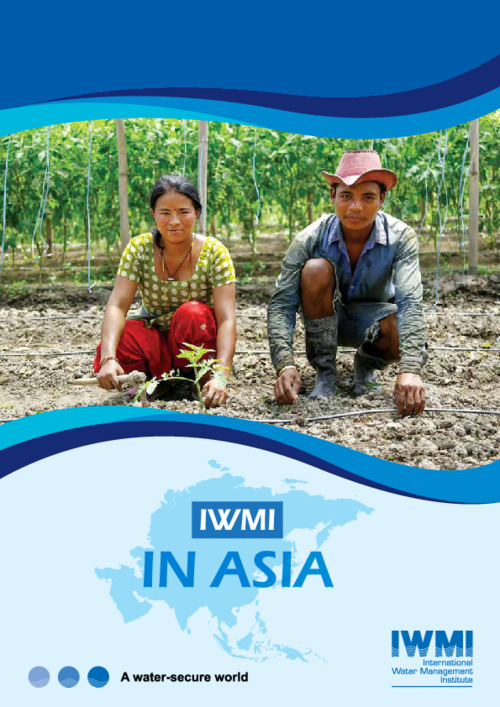IWMI in Asia
Abstract
Water management has profoundly shaped Asia’s past. From ancient times, civilizations across the continent mastered irrigation and water supply techniques, permitting a more productive agriculture that sustained large populations and helped expand trade. Several decades ago, massive public investment in large-scale irrigation contributed importantly to a green revolution in crop production and to subsequent economic growth.
Today, the issue is how Asia can shape the future of water management. Mounting pressures on this resource from rapidly growing and urbanizing populations, a changing climate and severe environmental damage threaten to undermine the continent’s
remarkable achievements. The overarching challenges are increased incidence of water-related disasters together with unsustainable and competing uses for water, which threaten food production and rural livelihoods, while also fueling conflict.
The International Water Management Institute (IWMI) works throughout Asia to help find effective ways to meet these challenges. Our aim is to enable communities and whole countries to tap the enormous potential for improving water management within the framework of the United Nations Sustainable Development Goals (SDGs). We pursue this aim through three strategic programs:
• Building Resilience
• Sustainable Growth
• Rural-Urban Linkages

